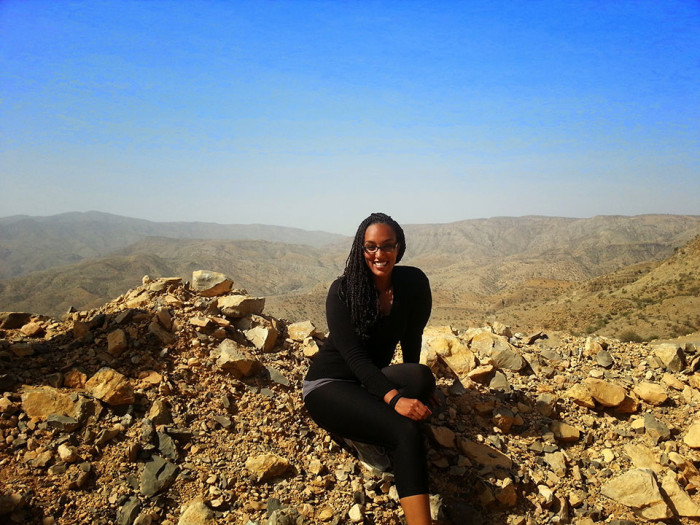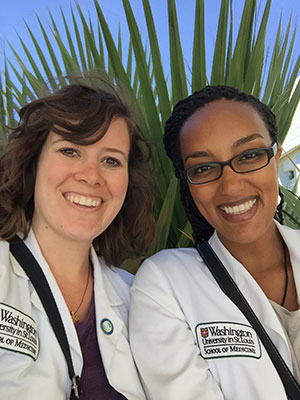Rahel Ghenbot
Growing up straddling two cultures, medical student Rahel Ghenbot says her family’s heritage helped lead her to a career in global health

Medical student Rahel Ghenbot takes time to explore Tigray, Ethiopia, the region where she had a clinical rotation in obstetrics and gynecology in January.
With roots in another continent and a longtime interest in health and cultural issues, medical student Rahel Ghenbot felt a career in global health was a possibility.
But after spending January in Mekelle, Ethiopia, in a clinical rotation in obstetrics and gynecology, Ghenbot is now certain.
A first-generation Eritrean American, Ghenbot went to Ayder Referral Hospital, a teaching hospital for the College of Health Sciences at Mekelle University, to learn about difficulties in practicing medicine in a developing country. She also wanted to know more about obstetric fistulas, injuries caused by prolonged labor that leave women — and often girls — steadily leaking urine and sometimes feces.
Fistulas are easy to repair in developed countries. But in Africa, many women and girls don’t have access to medical care during or after childbirth if injuries occur. The impact of a fistula on a young woman’s life can be devastating; many are cast out by their families.
“Mekelle was a great learning experience,” Ghenbot said. “I learned about ways in which outside help can be most effective, about what resources are most needed, and about interesting ways in which culture can affect health care. I have always been interested in global medicine, but this experience solidified my goal to have a career in global health.”

Ghenbot, who grew up in Illinois and earned a bachelor’s degree in biomedical engineering at the University of Minnesota, learned in March that she will do her residency training in obstetrics and gynecology at Ohio State University Wexner Medical Center. She hopes ultimately to have a career in academic medicine with a significant focus on global health.
Her family’s heritage and her childhood helped lead her to this point.
“Growing up as a first-generation Eritrean American was a blessing because I love my culture, but growing up straddling two cultures definitely comes with its difficulties,” Ghenbot said. “It’s like being a minority among minorities. I think that it gave me an interesting perspective on life, and it will serve me well in my future practice.”






